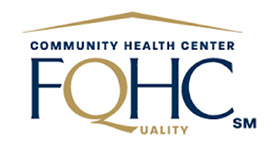AHL in the News, Events, homepage, News, Washington Community Health Center, Access Health Louisiana Primary Care at Pythian, Belle Chasse Community Health Center, Kenner Community Health Center, South Broad Community Health Center, St. Bernard Community Health Center, St. Charles Community Health Center – Norco, St. Charles Community Health Center – Luling, St. Tammany – Slidell Community Health Center, Tangipahoa Community Health Center, Woodworth Community Health Center
BLACK MATERNAL HEALTH WEEK
April 11-17th is Black Maternal Health Week. This week brings awareness to the disproportionate number of pregnancy-related deaths that Black women experience in comparison to other groups. Black Maternal Health Week is a week-long campaign founded and led by the Black Mamas Matter Alliance to build awareness, activism, and community-building to amplify the voices, perspectives and lived experiences of Black mothers and birthing people. The Black Mamas Matter Alliance (BMMA) is a national network of organizations and leaders from the maternal health, human rights, and reproductive justice fields. To learn more about the Black Mamas Matter Alliance, visit their website found here.
According to the Centers for Disease Control and Prevention, approximately 700
women die each year in the United States as a result of pregnancy or delivery
complications. Almost two-thirds of pregnancy-related deaths are preventable. In 2020, the maternal mortality rate for Black women was 3 times the rate for White
women in the United States. The CDC reports that Black women had a mortality rate of
55.3 deaths per 100,000 live births, compared to 19.1 deaths per 100,000 live births,
and 18.2 deaths per 100,000 live births for White and Hispanic women, respectively. These disparities are due to a wide range of factors such as such as
lower quality healthcare, structural racism, and implicit bias from healthcare
providers, and underlying chronic conditions. To learn more about maternal health outcomes in the US, visit the CDC’s page found here.
 Access Health Louisiana’s Maternal Care Coordinator, Maria Matute, understands the complex system that leads to these disproportionate outcomes. She comments that “During my time at AHL as a Maternal Care Coordinator, I have learned so much about the difficulties that our Black Maternal patients encounter in Louisiana and all over the United States during their pregnancy and postpartum journeys. Together we have a responsibility to stand up for our Black Maternal patients to ensure that they are being heard, treated with respect and dignity. Day by day we learn about different cultures, languages and beliefs that make up an individual. This is important when it comes to caring for someone, we should be able to understand them holistically first and then offer our professional opinions. I have learned that by listening to our patients, we can identify so many more ways to help them and understand them. All it takes is listening. Together we can create a bond of confidence, communication, and respect so that our Black Maternal patients feel safe and understood. Everyday my goal is to ensure that Maternal patients have access to prenatal care in a timely manner. But my job is not just to refer patients to OB/Gyn offices. My job is to ensure that the patient is being heard and treated with respect. Together we can make a difference for our Black Maternal Health patients.”
Access Health Louisiana’s Maternal Care Coordinator, Maria Matute, understands the complex system that leads to these disproportionate outcomes. She comments that “During my time at AHL as a Maternal Care Coordinator, I have learned so much about the difficulties that our Black Maternal patients encounter in Louisiana and all over the United States during their pregnancy and postpartum journeys. Together we have a responsibility to stand up for our Black Maternal patients to ensure that they are being heard, treated with respect and dignity. Day by day we learn about different cultures, languages and beliefs that make up an individual. This is important when it comes to caring for someone, we should be able to understand them holistically first and then offer our professional opinions. I have learned that by listening to our patients, we can identify so many more ways to help them and understand them. All it takes is listening. Together we can create a bond of confidence, communication, and respect so that our Black Maternal patients feel safe and understood. Everyday my goal is to ensure that Maternal patients have access to prenatal care in a timely manner. But my job is not just to refer patients to OB/Gyn offices. My job is to ensure that the patient is being heard and treated with respect. Together we can make a difference for our Black Maternal Health patients.”
Are you pregnant? Call 504-575-3765 or visit our Maternal Childcare webpage to schedule an appointment with our Maternal Care coordinator. Our MCC can help with WIC and Medicaid applications, connecting you to medical services, highlight Social Determinants of Health that may be impacting you, and connect you to community resources.






